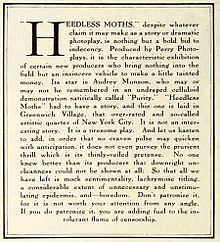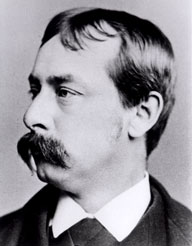Editorial


An editorial, or leading article (UK) or leader (UK), is an article or any other written document, often unsigned, written by the senior editorial people or publisher of a newspaper or magazine, that expresses the author(s)'s opinion about a particular topic or issue. Australian and major United States newspapers, such as The New York Times[1] and The Boston Globe,[2] often classify editorials under the heading "opinion".
Illustrated editorials may appear in the form of editorial cartoons.[3]
Typically, a newspaper's editorial board evaluates which issues are important for their readership to know the newspaper's opinion on.[4]
Editorials are typically published on a dedicated page, called the editorial page, which often features letters to the editor from members of the public; the page opposite this page is called the op-ed page and frequently contains opinion pieces (hence the name think pieces) by writers not directly affiliated with the publication. However, a newspaper may choose to publish an editorial on the front page. In the English-language press, this occurs rarely and only on topics considered especially important; it is more common, however, in some European countries such as Denmark, Spain, Italy, and France.[5]
Many newspapers publish their editorials without the name of the leader writer. Tom Clark, leader-writer for The Guardian, says that it ensures readers discuss the issue at hand rather than the author.[6] On the other hand, an editorial does reflect the position of a newspaper and the head of the newspaper, the editor, is known by name. Whilst the editor will often not write the editorial themselves, they maintain oversight and retain responsibility.[7]
In the field of fashion publishing, the term is often used to refer to photo-editorials – features with often full-page photographs on a particular theme, designer, model or other single topic, with or (as in a photo-essay) without accompanying text.[8]
See also
- Column (periodical) – Recurring piece or article in a periodical
- Editorial board – Group of experts that dictate a publication's editorial policy
- Op-ed – Type of opinion-expressing written pieces
- Opinion piece – Writing reflecting the author's opinion
References
- ^ Staff (23 May 2012). "Opinion". The New York Times. Archived from the original on 3 November 2014. Retrieved 23 May 2012.
- ^ Staff (23 May 2012). "Opinion". The Boston Globe. Archived from the original on 23 December 2010. Retrieved 23 May 2012.
- ^ Staff (2012). "AAEC The Association of American Editorial Cartoonists". The Association of American Editorial Cartoonists. Archived from the original on 1 July 2007. Retrieved 23 May 2012.
- ^ Passante, Christopher K. (2007). The Complete Idiot's Guide to Journalism – Editorials. Penguin. p. 28. ISBN 978-1-59257-670-8. Retrieved 21 February 2010.
- ^ Christie Silk (15 June 2009). "Front Page Editorials: a Stylist Change for the Future?". Editors' Weblog. World Editors' Forum. Archived from the original on 11 November 2011. Retrieved 1 July 2011.
- ^ Clark, Tom (10 January 2011). "Why do editorials remain anonymous?". The Guardian. Archived from the original on 27 May 2018. Retrieved 26 May 2018.
- ^ Crean, Mike (2011). First with the news: an illustrated history. Auckland: Random House. p. 97. ISBN 978-1-86979-562-7.
- ^ "Various editorials". models.com. Archived from the original on 4 December 2017. Retrieved 3 April 2012.
